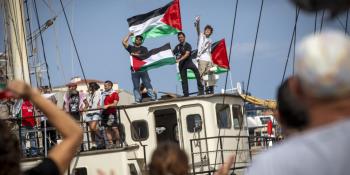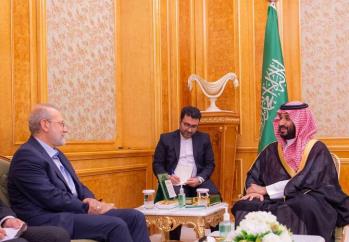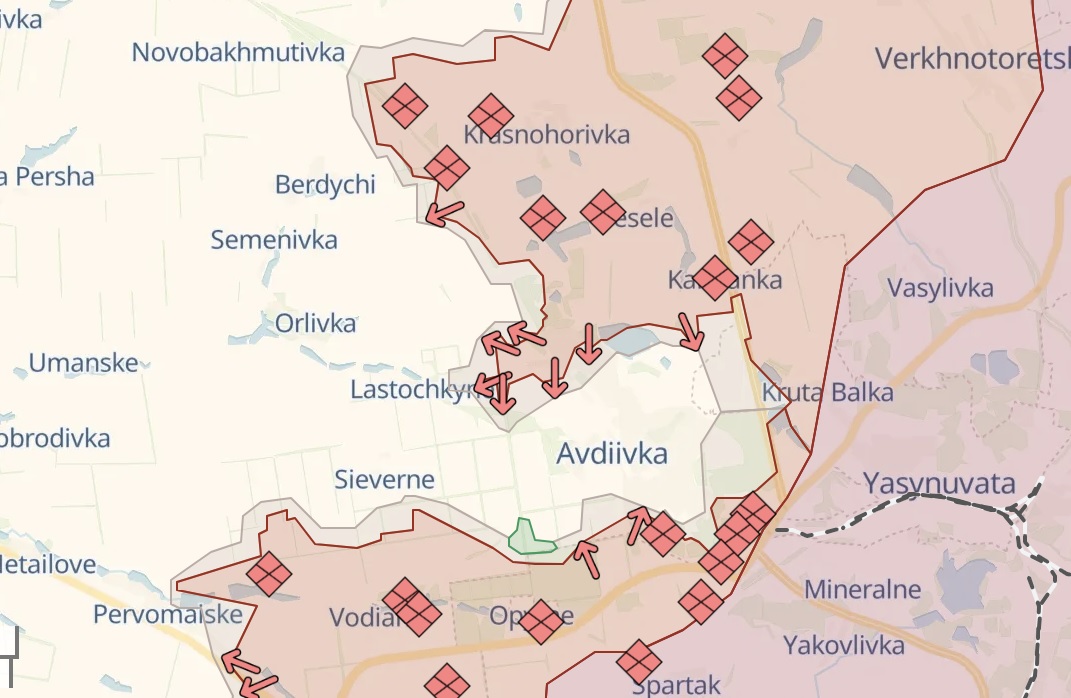The Russian army's capture of the strategically important city of "Avdiivka" on the second anniversary of the Ukraine war revealed the failure of Western attempts to defeat their Eastern adversary, while belated security agreements by Europeans offer no salvation to Kiev from its self-inflicted crisis.
ALWAGHT- Although the battlefield dynamics between Russia and Ukraine had remained relatively stable in recent months with no notable advancements by either side, sudden developments in recent days have once again tilted the military and political balance in favor of Moscow, signaling that the Russians have regained complete control over the course of the war.
The Russian Ministry of Defense declared that its troops had effectively taken over the strategic city of "Avdiivka" in eastern Ukraine's Donetsk region on Saturday. Russian President Vladimir Putin also praised his country's military for this latest battlefield achievement, hailing it as a "significant victory." Previously, the Ukrainian army had ordered an immediate withdrawal from Avdiivka due to the imminent threat of encirclement by Russian forces.
The New York Times highlighted Avdiivka as a long-standing bastion of the Ukrainian army against the encroachment of Russian forces, reporting that Ukrainian soldiers are grappling with despair and panic among their ranks on the front lines. The publication further asserted that the fall of Avdiivka and Russian control over it represent the foremost major triumph for Russian forces on the battlefield since May of last year.
The importance of Avdiivka
The occupation of Avdiivka, which fell into Russian hands after months of bloody battles, marks the most significant change in the front line stretching over 1000 kilometers. This military achievement is the clearest indication of how, following Ukraine's anti-offensive failure last year, the tide of war has turned in Moscow's favor.
The capture of Avdiivka constitutes a strategic blow to the Ukrainian army, as it served as a defensive stronghold protecting several key positions such as the constantly threatened city of Donetsk, which was in close proximity to Russian control.
Taking control of Avdiivka could also provide an opportunity for Russia, allowing its forces in the next phase to assert control over strategic cities like Pokrovsk, a logistical hub for the Ukrainian army.
This victory also brings Russians closer to their important goal of occupying the entire Donetsk region. Seizing this strategic city gives the Russian army the opportunity to fully control the Luhansk and Donetsk provinces in the future, establish a secure defensive belt around these areas, and consolidate their dominance over them. Moreover, pushing Ukrainian forces away from the outskirts of Donetsk will prevent Ukrainians from easily penetrating Russian borders and reduce the effectiveness of Ukrainian drone attacks by strengthening Russian defenses in the region.
Avdiivka is considered the entrance to Donetsk, with Russian authorities alleging that its residential areas have at times faced Ukrainian fire. The Russian Ministry of Defense asserts that Avdiivka functioned as a strong defensive hub for Ukrainian forces, and its capture shifts the frontline away from Donetsk, limiting Ukraine's capacity to target Russian positions.
Conversely, seizing Avdiivka might uplift Russian troops' morale while dampening the spirits of Ukrainian forces, who have seen minimal progress since the "counteroffensive" began in June.
Avdiivka, renowned for its substantial coal-based coke plant, represents an economic asset for Russia. Its network of tunnels and reinforced concrete structures could serve as timely reinforcement for Russia and a potential springboard for future successes.
The capture of Avdiivka marks Russia's most significant territorial gain since the annexation of Crimea in May and could be a source of pride for Putin, who seeks his fifth presidential term in the March 17th elections. Presently, certain Kremlin officials have hailed the seizure of Avdiivka as the war's most notable triumph.
The rift in the NATO front
Amid recent reports of reduced military aid to Ukraine by the United States and its allies, the Russian advancement into Ukrainian territory has raised concerns among Kiev officials.
In the face of a two-year conflict, Ukraine has shifted back to a defensive posture against Russia due to shortages in ammunition and personnel. Ukrainian President Volodymyr Zelensky cautioned allies at the Munich Security Conference about the threat posed by the lack of armaments, providing Russia with flexibility to escalate the conflict.
During a phone call, President Joe Biden tied the withdrawal of Ukrainian forces from Avdiivka to Congress's failure to pass a relief package for Kiev. Biden assured Zelensky of convincing Congress to approve increased funding for Ukraine before Russia could capture more territories. However, it's unlikely that Republicans will support this request, given their skepticism about Ukraine's prospects for victory. The retreat from Avdiivka has highlighted Ukraine's inadequate strength against the Russians, leading Republicans to be reluctant to invest billions of dollars in seemingly unsuccessful efforts.
Ukraine's withdrawal from the strategic city of Avdiivka coincides with a period of apparent weakness within the NATO military alliance. Donald Trump, the former President of the United States and the probable final nominee for the Republicans in the upcoming US presidential election, recently issued threats to European allies, indicating that if he were to return to the White House, he would withdraw the US from NATO. This development has sparked concerns regarding the future of the 77-year-old alliance. European leaders, in response to Trump's remarks and to showcase their ability to defend themselves independently of the US, have emphasized that NATO does not hinge on the whims of the US president.
Throughout his presidency, Trump consistently pressured Europeans to allocate two percent of their gross domestic product to NATO; failure to do so would result in reduced US contributions to the organization. Consequently, Europeans are apprehensive about Trump potentially regaining power and view it as a threat to NATO's future. Consequently, certain European powers have recently acted in Ukraine to lessen reliance on Washington.
Against this backdrop, the President of Ukraine has signed bilateral security pacts in Berlin and subsequently in Paris to secure long-term support from Germany and France for his country. Emmanuel Macron, the President of France, has pledged to offer up to three billion euros in additional military assistance to Kiev this year, and Germany has also agreed to similar commitments.
In light of Congress's hesitance to offer additional aid to Ukraine (exceeding $60 billion), France and Germany aim to use these security pacts to show their ongoing support for Ukraine. They seek to prove that they remain committed to assisting their ally, even without Washington's involvement, in confronting the formidable Russian military.
Several European leaders have asserted multiple times that following the full annexation of Ukraine, Russia may target other NATO territories. This has led countries such as Sweden to ready themselves for possible confrontation with Moscow.
Europe's limited capacity to defend Ukraine
Although the military efforts of France and Germany in support of Ukraine may offer temporary relief to the country's armed forces, they cannot address the long-term challenges facing Kiev. Recent years have underscored the difficulty even with substantial backing from the United States, as European nations have encountered in achieving significant progress.
Both American and European authorities acknowledge the necessity of a formidable arsenal to sustain an extended confrontation with Russia in Ukraine. However, Western nations confront a significant obstacle in this endeavor. Despite direct military assistance from 20 nations, Ukraine has grappled with shortages of critical weaponry over the past two years. Western media reports indicate that ammunition reserves in Europe and the United States have been depleted, leading to recent hurdles in aid delivery.
According to reports, the German military is presently less equipped for engagement in Ukraine than previously, as Berlin has redirected many of its top armaments to Kiev. To address these shortages, the German government has revealed plans to triple its arms procurement in 2024.
European policymakers and leaders in the arms industry have voiced concerns about diminishing weapon reserves in recent months, according to Bloomberg. They have highlighted that while arms manufacturers face a surge in orders, they lack defense contracts and government subsidies crucial for expanding production securely.
According to the mentioned report, Europe's defense industry is encountering various challenges, including a shortage of skilled labor, insufficient parts and resources, bureaucratic hurdles, and banks' hesitance to extend loans to arms manufacturers. Despite ongoing discussions among NATO members regarding unprecedented military budgets, analysts argue that this alliance is unlikely to enhance its production capabilities in the foreseeable future.
In contrast, Russia enjoys a strong military position and has successfully expanded its military output despite facing extensive Western sanctions. Western attempts to weaken Russia both militarily and economically through the erosion of the Ukraine conflict have proven counterproductive. Instead of Europe, Russia has found new markets for its oil and gas in Asia and has effectively mitigated the impact of sanctions. Furthermore, Russia has demonstrated no vulnerabilities in its defense sector.
In a report published on Saturday, The Guardian newspaper expressed surprise at the resilience of Russia's economy and conceded that the country could sustain its involvement in the Ukraine conflict within the defense industry for several years without significant impediments.
As reported by The Guardian, Russia's production of artillery ammunition has surpassed expectations by a considerable margin, giving Russia a substantial advantage in firepower. Mark Riisik, a defense official from Estonia, expressed his concern, remarking, "The production level is much higher than we anticipated." Russia now enjoys a significantly superior position in terms of artillery firepower, putting Ukraine at a disadvantage on the battlefield. Moreover, the increase in Russia's military budget signals a noteworthy shift in Moscow's defense priorities.
Just two weeks ago, Putin commended the role of Russia's defense industry in the Ukraine conflict, emphasizing the creation of millions of job opportunities for the Russian economy. According to the Russian President, Russia's modern weaponry outmatches that of NATO countries, which have provided extensive military aid to Ukraine. Russian Defense Minister Sergei Shoigu also announced last month a substantial increase in the production of hardware and military equipment, with artillery shell production seeing a significant multiplication.
Russia's triumph in Avdiivka, marking the second anniversary of the Ukraine conflict, sent a clear message to NATO: Russia is formidable. Efforts to secure security agreements and seek approval for additional budgets from Congress cannot extricate the West from its predicament.



























